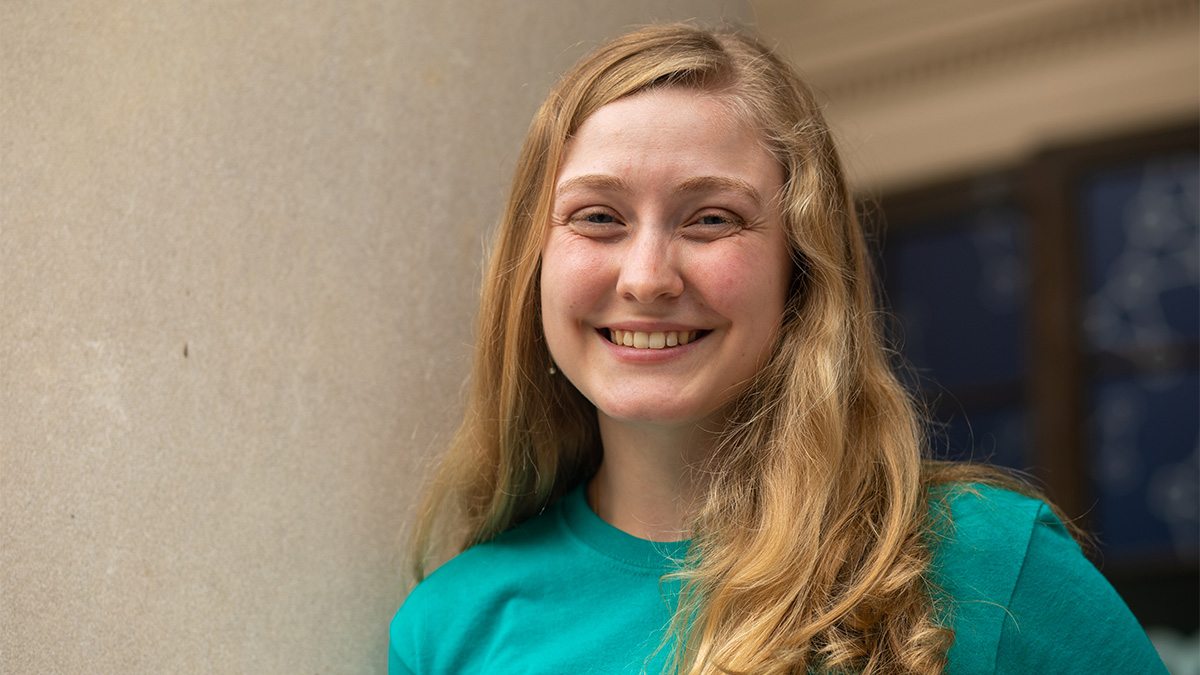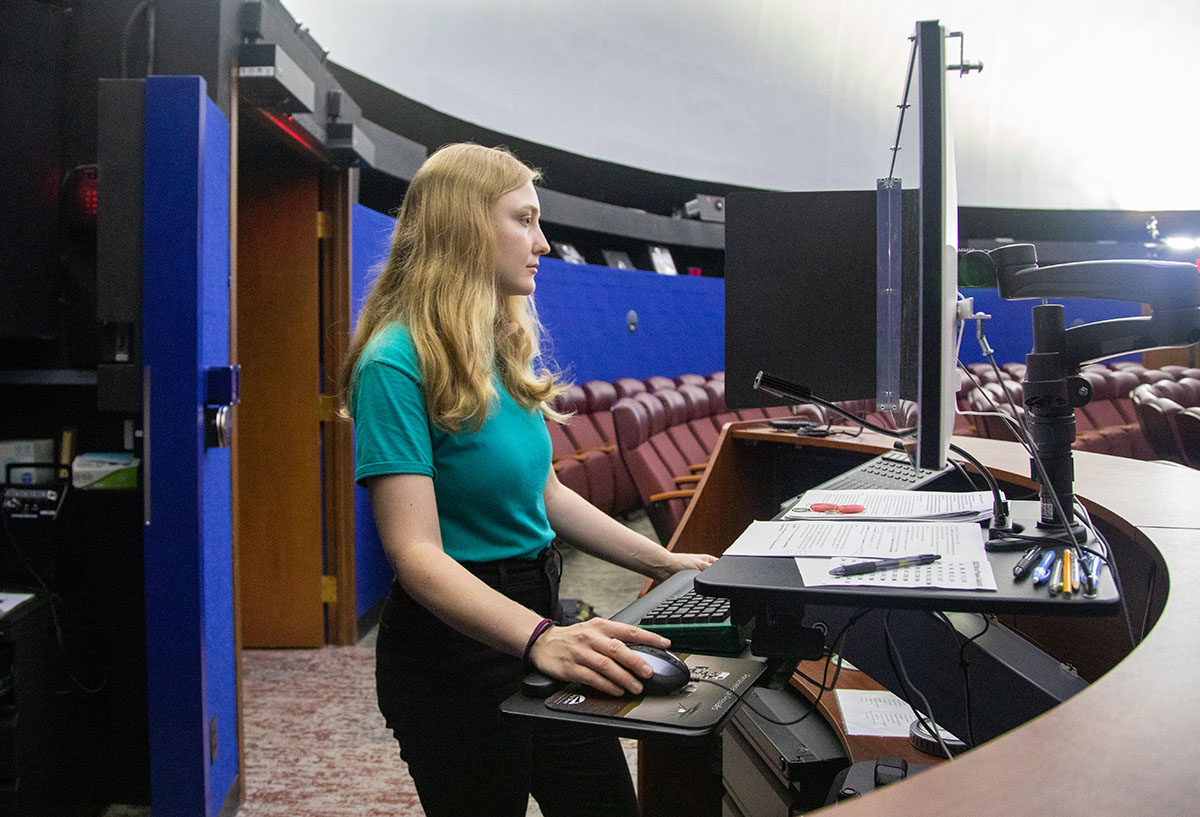Carolina senior shares planetarium magic with stargazers
As a science educator and full-dome theater technician, Sophie Mallinson leads her own planetarium shows to guide space enthusiasts through the night sky at the Morehead Planetarium and Science Center.

Sophie Mallinson has an ability that not many other Tar Heels can claim to possess: With a push of a button, the Carolina senior can control the stars.
Mallinson has been mastering that power over the past two years and has shared the results with hundreds of stargazers. She calls it “planetarium magic.” With it, she can not only simulate the night sky at any point in time, but she can also take away light pollution to fully explore the stars above Chapel Hill.
“There’s always gasps. There’s always a ‘Wow,'” Mallinson said of when the planetarium magic takes over. “It’s something I’ve heard a hundred times. I haven’t gotten sick of the nighttime sky.”
Mallinson learned this talent from the Morehead Planetarium and Science Center, where she works part-time as a science educator and full-dome theater technician. In her position, Mallinson helps to present planetarium shows for space enthusiasts by leading sky tours and controlling the 4K laser projection system that provides Morehead’s 68-foot dome with its planetarium magic.
A star navigator
Mallinson was inspired to join the Morehead Planetarium and Science Center during Professor Dan Reichart’s intro to astronomy course. The class took a trip to the Morehead Planetarium for a show early in the semester.
“At the end of it, [the presenter] was plugging student jobs, and I was like, ‘Yeah. Absolutely I want to work here because a lot of it is cool science,'” she said. “It’s such an amazing experience — being in the dome — and there are beautiful stories that go with talking about astronomy. It seemed like a really cool blend.”
By the end of the semester, Mallinson was taking hold of the red laser pointer and providing 10-minute tours of the sky as a “navigator” in the planetarium.
“I was quite proud of myself,” she said, reflecting on her first show. “I wanted to try to click the buttons myself, so I did. I talked about Orion. I talked about Sirius. It was like an adrenaline rush. I remember afterward, the person I was working with said to work on not being so shaky with the pointer. It’s very hard not to be shaky when you’re presenting a show for the first time.”
With a focus on steadying her pointer and after hours of training on the system that brings the shows to life, Mallinson worked her way from navigator to technician. The new status allows her to give shows and run the equipment on her own. It also means she’s the one getting the planetarium ready for the show, from turning the system on to preparing the seats.
“There’s quite a bit of background work that people don’t see that goes into setting up for the shows,” she said. “There’s a lot of setting up — where the mic goes, where our pointer goes, making sure the theater is clean. The tech is behind the booth, turning off the seat lights and turning off the big lights. I don’t think anyone knows how many buttons are getting clicked and how long it takes to work up both the skills and the confidence to be able to give those shows.”
Science for all
That effort, she said, is all worth it to bring something awe-inspiring to the planetarium audience. Particularly when it comes to the elementary school groups, Mallinson is on the frontline of the Morehead Planetarium and Science Center’s mission to make science accessible, equitable and inclusive to people across North Carolina
The Tar Heel wants the students to leave the planetarium excited and eager to learn.

Sophie Mallinson controls the projection system that provides Morehead’s 68-foot dome with its planetarium magic.
“They ask a lot of questions. They’re not afraid to ask them,” she said. “Sometimes they can be a little amusing, but we don’t want them to feel bad for asking. We don’t want them to lose whatever curiosity prompted them to ask it. We trained 62 astronauts here, and we like to say that we might still be training astronauts. Maybe the little kid sitting in the seat is going to be an astronaut.”
The need to distill complex information — from rocket science to black holes — has been a benefit for Mallinson, who is studying journalism at the Hussman School of Journalism and Media and preparing for a career in radio and podcasting. With each show, she has a chance to hone her storytelling skills and the ability to share information effectively.
“Explaining astrophysic concepts to an 8-year-old has definitely made me better at gauging how to talk about information to people of different ages and different audiences,” she said.
Whether it’s answering questions on nebulas or using the planetarium technology she has at her disposal to transport the audience through the galaxy, Mallinson always aspires to create the same excitement she felt the first time she saw a show at Morehead Planetarium.
“I really do love my job,” she said. “I really try to keep in mind that the planetarium can be a magical experience for small children, but also adults. I think it can change people’s perspectives about their place in space. We can think of ourselves as being insignificant, or we can think about ourselves as being part of this. We get to be part of this large universe.”




